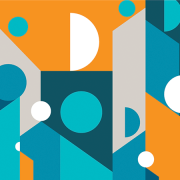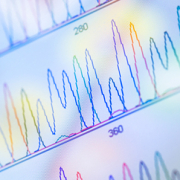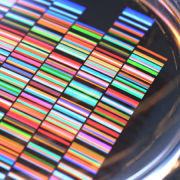The modern face of genomic medicine
Genomics England’s new PanelApp is set to encourage shared knowledge and accelerate progress in whole genome sequencing analysis
We are all increasingly familiar with apps – essentially just pieces of software designed to perform a particular function. Over the last few years, apps have become a popular and convenient way to share information, and the world-leading 100,000 Genomes Project is now joining the ranks, with a new crowdsourcing website designed to assist experts in clinical genomics in sharing knowledge.
Virtual gene panels
One of the project aims is to seek a genomic diagnosis for patients with rare diseases and cancer. This is done by sequencing and analysing their whole genomes. Patients enrolled in the rare disease arm of the project are affected by one of around 120 forms of rare and ultra-rare disease for which an underlying genetic cause is suspected but not yet identified. Some will receive a genetic diagnosis as a result of participating in the project, which may be immediately helpful for their clinical management; others will not receive a diagnosis, but their contribution will not have been in vain.
At present, whole genome sequencing is not routinely available outside the project, but it is hoped that the knowledge gleaned (Genomics England has commissioned research institutes to investigate data) will begin to benefit some other patients almost immediately. The challenge to clinicians and scientists, however, is monumental: to find gene changes, sometimes very subtle, in the vast amount of data generated by whole genome sequencing.
Experts in clinical genomics often use gene panels – selected genes in which changes are known to be linked with disease – for testing; these are quicker, easier and cheaper than whole genome sequencing. A ‘virtual’ gene panel is therefore a useful way of prioritising when confronted with the many variants found during analysis of whole genomes or exomes. In PanelAp Genomics England has created initial virtual gene panels from a variety of international sources, including the UK Genetic Testing Network (UKGTN), for all the rare diseases relevant to the project. Now, experts are being asked to review the panels in order to help establish a consensus.
Sharing knowledge to strengthen evidence
Every time new evidence emerges linking a specific genetic change to a given condition, the gene in question can be more reliably linked with the condition. Clinical experts are encouraged to share their knowledge and experience to increase the possibility of identifying patterns and making reliable diagnoses.
The new PanelApp provides a platform for experts to easily share their knowledge and experience. They can register as expert reviewers to rate genes, and the results will be shown using a traffic light system: those endorsed by multiple sources and expert reviewers are rated green; those with only two endorsements are rated amber, and those with only one are rated red, for low confidence. The idea is that the more experts who have rated a gene as important for diagnosing a given rare disease, the more it could confidently be included on the virtual gene panel for genome analysis. The panels can also be viewed and downloaded.
Will it work?
Generally, the most successful website apps are those that fulfil a need and are simple to use. Clinical geneticists are well aware of the benefits of knowledge sharing; a great many are already closely involved with the 100,000 Genomes Project. However, like other health professionals, they are busy people, so providing a handy crowdsourcing tool to help pool their expertise for wider patient benefit is likely to be a good move.
–









